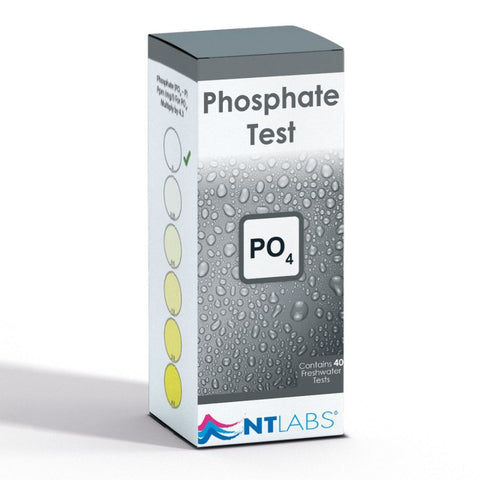Product Description
What is Phosphate?
Phosphate is a major nutrient found principally in fish food to help with growth, good bone formation and many other biological processes. However, not all of the phosphate will be utilised by the fish and will be excreted as a waste product. It can also be generated by the breakdown of other organic matter and is also often present in tap water. While phosphate is beneficial for life, it is only required in small quantities.
Why test for Phosphate?
Increased phosphate in the water column is often a major contributor to the growth of nuisance algae. At low levels, it is generally considered safe for fish, but should be monitored for algae prevention. Higher concentrations of phosphate can start to interfere with the mineral balance within fish.
What is the correct phosphate level?
The ideal phosphate concentration should be as close to zero as possible. While some phosphate is desirable to aid with the healthy growth of higher plants, only trace amounts between 0 and 0.25 mg/L PO4-P are required.
What do I do if the Phosphate level is wrong?
In most instances, regular partial water changes with dechlorinated tap water should help to keep the phosphate low. Check the phosphate concentration in the tap water too to make sure phosphate isn’t being accidentally introduced. Algae Gone is a liquid solution that can be used to bind phosphate. Aquarium Phosphate Remover is a filter medium that has a high affinity for phosphate and can provide continual phosphate removal for 3 months (depending on phosphate load).
How do I do the test?
Ensure the test tube is clean. Take a 5 ml sample of aquarium water into the test tube. Add 5 drops of the phosphate reagent, place the cap on the tube and mix gently for a few seconds. Wait 5 minutes for the test to develop, remove the cap and look down through the test tube to determine the colour. Compare this colour to the colour chart provided to determine the phosphate concentration.

